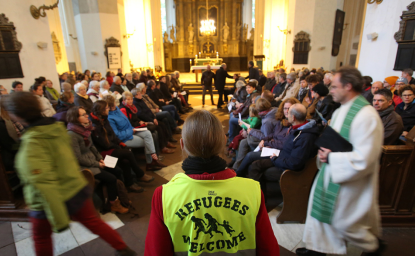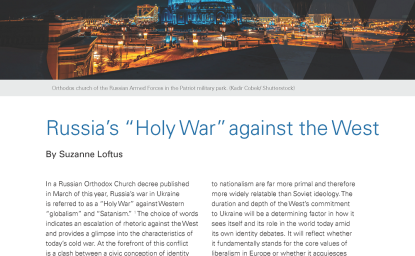Latin American Program in the News: Shifts in balance of power create uneasy relations in Latin America
Dr. Alexander Wilde comments on the the role of the Church in politics in Latin America, historically and as it continues to change.
Dr. Alexander Wilde comments on the the role of the Church in politics in Latin America, historically and as it continues to change.
Church-state conflicts date back to colonial times, and when the region shook off Spanish rule, the Catholic Church had to readjust its relationship with each newly independent Latin American country, says Alexander Wilde, a senior scholar in the Washington-based Wilson Center's Latin America program.
Church leaders in Chile in the 1970s also initially supported former dictator Augusto Pinochet's violent crackdown on opponents, although their position changed over time, Wilde says. There, too, many church workers at the grass roots took an active stand against the dictatorship.
Because of their positions in Latin American societies, both presidents and church leaders run the risk of becoming isolated from the grass roots, says Wilde, who has studied human rights and violence in various countries in the region, including Chile.
"It's a bubble -- it happens to people in power," he says. He adds, however, "You hardly ever get a hierarchy that is uniform," and bishops have been threatened or killed for taking stands against dictators or sertrong-arm rulers.
"Some people say the bishops should support all governments acritically; others say they should maintain steadfast opposition; and some say we should abstain from saying anything. The three views are partial and imprecise," they wrote in their Jan. 3 statement. "It is not our place to express political preferences, but it is our job to evaluate the ethical and religious implications and consequences of political plans."
Those comments reflect what Wilde says is broader ambiguity about the church's involvement in politics.
"The Vatican has sent very different signals in recent years," he says. "There's always an inherent tension, because the church claims some authority over the whole society, and where the lines are drawn as a practical matter may change over time."
To read more, please click here.


The Wilson Center’s prestigious Latin America Program provides non-partisan expertise to a broad community of decision makers in the United States and Latin America on critical policy issues facing the Hemisphere. The Program provides insightful and actionable research for policymakers, private sector leaders, journalists, and public intellectuals in the United States and Latin America. To bridge the gap between scholarship and policy action, it fosters new inquiry, sponsors high-level public and private meetings among multiple stakeholders, and explores policy options to improve outcomes for citizens throughout the Americas. Drawing on the Wilson Center’s strength as the nation’s key non-partisan policy forum, the Program serves as a trusted source of analysis and a vital point of contact between the worlds of scholarship and action. Read more



